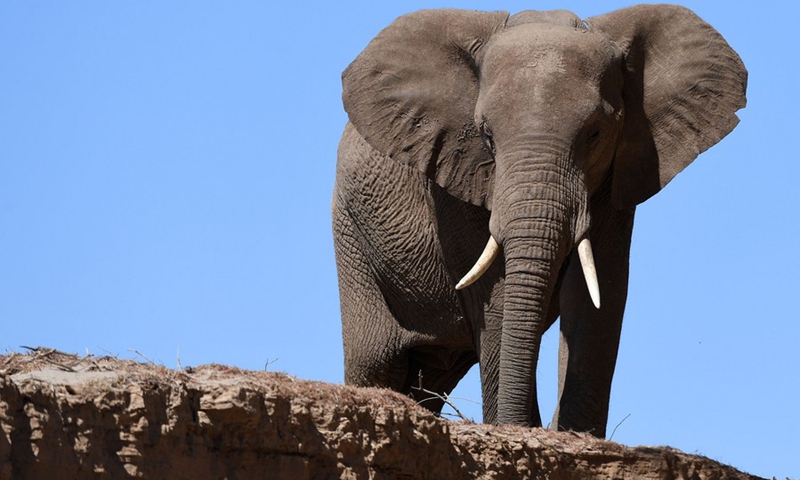Conference held in Nairobi to promote wildlife protection, crack down on illegal trade

The WWF and the China International Contractors Association jointly held a conference on Monday in Nairobi, capital of Kenya, to help promote wildlife protection and crack down on illegal wildlife trade. Eighty representatives including officials from the Chinese Embassy in Kenya and the Kenya Wildlife Service attended the conference.
It comes after recent reports of Chinese customs seizing illegal wildlife products sourced from endangered species, such as ivory. It also comes at a time of blossoming international tourism in the post-COVID-19 era.
Kenya is an important habitat for famous African species such as elephants and rhinos. However, the animals are threatened by rampant poaching and global illegal trade, with some populations on the brink of extinction.
With the resumption of international travel, it is not uncommon for Chinese nationals and overseas Chinese to purchase endangered wildlife products such as ivory in Africa and illegally transport them back to China. In a recent case, customs authorities in Taiyuan, North China's Shanxi Province, discovered and seized 118 items of illegal wildlife products, including 114 ivory products and four red coral products, during inspection of inbound parcels on August 30.
In Beijing, the customs authorities seized 7,800 items of endangered wildlife and their products during entry inspection in the first five months this year, according to media reports.
The illegal trade of these endangered species not only poses a threat to local ecosystems but also has a negative impact on China's image as a responsible major country in biodiversity conservation.
As a signatory to the Convention on International Trade in Endangered Species of Wild Fauna and Flora (CITES), China has always strictly complied with international conventions.
At the end of 2017, China announced a comprehensive ban on the commercial processing and sale of ivory, making an important contribution to the protection of wild elephants and demonstrating its role as a major country. In November 2018, in response to international concerns, the State Council indefinitely extended the trade ban to rhino horns and tiger bone, reaffirming the continued implementation of three strict prohibitions - namely, the prohibition of imports and exports, buying and selling, and transportation of rhinos and their products, as well as the prohibition of using rhino horn and tiger bone in medicine.
"This year marks the 50th anniversary of the signature of the CITES and it is also the 42nd anniversary of China's signature to join the convention. China has been making active contributions to sustainable development as well as wildlife and biodiversity protection," Zhang Xianfeng, an official from the Chinese Embassy in Kenya, told the conference on Monday. Zhang stressed that China always emphasizes close cooperation with Kenya in implementing the CITES obligations.
"We are pleased to see that China has taken a leading role in efforts to protect endangered species and global biodiversity. However, illegal wildlife trade will undermine global conservation efforts. It is like an out-of-control machine, with consumption as its engine, and each of us holds the key to shutting it down. When people stop buying endangered wildlife products such as ivory, the bloody chain of profit will be broken," WWF China's Chief Program Officer Zhou Fei told the conference.